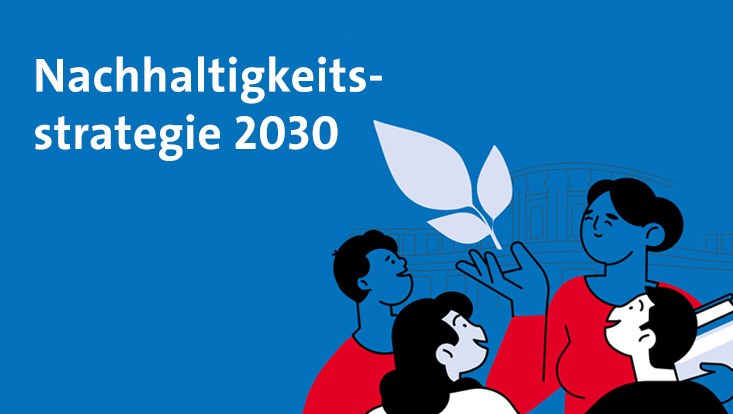5 June 2025
Developed through participation: 54 goals for sustainable transformationThe University of Hamburg Passes 2030 Comprehensive Sustainability Strategy

Photo: PureSolution/Shutterstock
The University of Hamburg’s 2030 Sustainability Strategy covers the central performance areas of research and research infrastructure, studies and teaching, and knowledge exchange. Governance and administration and operations also form part of the framework.
The offices of the deans are developing faculty- and department-based strategies, measures, and initiatives that take the diversity of subject cultures and the specific needs of University members into account. At the same time, administrative departments, units, the University Administration, and central institutions are encouraged and provided with support to develop their own sustainability and digitalization concepts. These should clarify the goals in individual spheres of activity and contribute to the University’s overall strategy.
Fifty-four goals across all dimensions and over 100 defined measures have been identified in the 2030 Sustainability Strategy. For example, sustainability-related and digital research should be expanded upon. This should include strategic professorial appointments with a focus on sustainability and digitalization. Moreover, standardized reporting and participation in independent sustainability audits and certification processes should ensure transparency with regard to sustainability at the University. The comprehensive catalogue of measures includes new degree programs with a focus on sustainability and digitalization; decarbonization in campus operations; and strategic partnerships with global players in sustainability.
Prof. Dr. Hauke Heekeren, president of the University of Hamburg: “The 2030 Sustainability Strategy is the result of an extraordinarily broad participatory process in which members from all areas of the University took part. As a University of Excellence and a flagship university in northern Germany, we want to actively shape the transformation, with sound science, digitally, and sustainably. Our guiding principle Innovating and Cooperating for a Sustainable Future in a Digital Age stands for our commitment to driving the twin transformation onwards and to making the University of Hamburg a living laboratory for sustainability development. With 54 goals and over 100 concrete measures, we are laying the groundwork for firmly and systematically establishing sustainable development in research, teaching, knowledge exchange, and campus life.”
Prof. Dr. Laura Marie Edinger-Schons, chief sustainability officer for the University of Hamburg: “Our goal is to make the University of Hamburg a place where new ideas emerge, are tried out, and carried into society at large. The twin transformation is an opportunity to responsibly shape the future through interdisciplinary cooperation, innovative technologies, and a dynamic culture of sustainability."
The University of Hamburg can look back over a long-standing history of sustainability activity. Between 2011 and 2019, it drove sustainability at the institutional level through its Center for a Sustainable University. Since its success in the Excellence Strategy of the Federal and State Governments in 2019, it has been committed to the guiding principle of sustainability in its further development, thereby making it a central strategic goal. This led to the creation of our guiding principle of Innovating and cooperating for a Sustainable Future—to which we subsequently added “in a Digital Age” to emphasize the special significance of the twin transformation. Since its founding in December 2022, the Sustainability Office has inspired, facilitated, and supported the University, acting as the coordinating unit for the development of a widely employed sustainability strategy.
The entire 2030 Sustainability Strategy of the University of Hamburg is available as a PDF, which you can download from the University’s sustainability pages.
Do you need photos for reports about the University of Hamburg? You can find high-resolution press photos in print quality for free in our image database.
Are you looking for an expert for an article on a particular topic? The University’s experts service offers a search by department and key word which you can use to get contact details.
